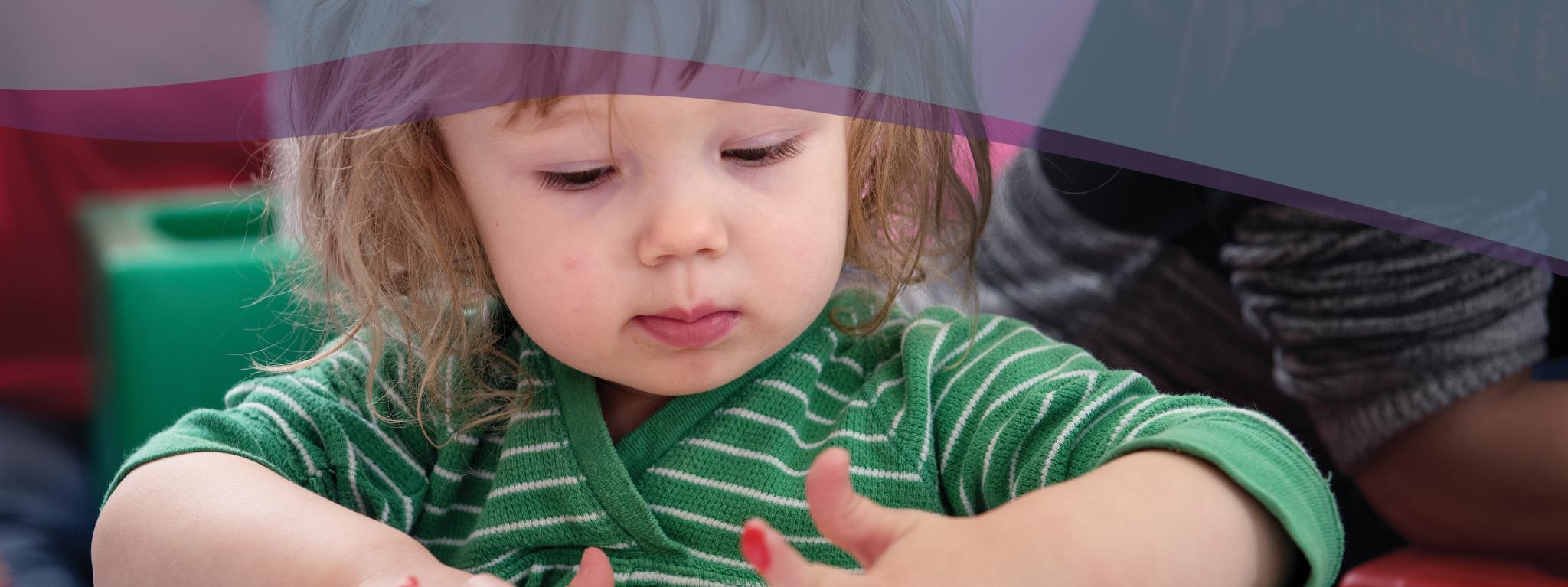
Early On® Frequently Asked Questions
What is Early On®?
Early On® is a program of the Michigan Department of Education. Early On® assists families seeking help for infants and toddlers with chronic health issues and/or developmental delays. The program is open to infant and toddlers under three who live in the school districts of Charlotte, Grand Ledge, Potterville, Eaton Rapids, and Maple Valley. Most services are available year round.
How is a child referred to the Early On® system?
Perhaps your child is ill or seems to be slow in smiling, sitting up, or speaking. Your baby may have a physical condition such as cerebral palsy or a heart defect that is discovered shortly after birth. Sometimes health problems such as asthma or hearing loss may develop in the first year. Maybe you have begun to notice that your baby seems to act differently than other children.
The Early On® program depends on you or someone else noticing that your child may have special needs. A relative, baby sitter, doctor, public health nurse, or others in the community may suggest Early On®. The process begins with a phone call to the Eaton County Early On® Program at 517.541.8937.
You will be asked about your concerns. The next step is for Early On® to determine if your child is eligible for services. The referral must be made within two days of your call. If eligible, your child will receive a free evaluation and a wide range of services.
What services does Early On® offer?
Early On® Coordinators are located in each county and are available to help a parent decide if they want to enter the Early On® system. Here are the four steps:
- Evaluation - If it is suspected that a child has a developmental delay or a condition that could lead to such delay, an evaluation is initiated.
- Individualized Family Service Plan - If the child is eligible for Early On® services, an Individualized Family Service Plan (IFSP) is developed. The IFSP addresses the developmental needs of the child as well as the needs of the family helping the child.
- Service Coordination - An Early On® Service Coordinator helps the parent coordinate the services outlined in their child's plan.
- Implementation - Services outlined in the IFSP are implemented with permission of parent.
Examples of services that may be offered by Early On® include:
This program uses a home-based approach. Instruction is generally provided in one-hour settings by a professional staff who operate as a team with family members. Parents carry out the majority of instruction within the home setting. Parents may be invited to group programs to observe and participate with the children in small group settings, meet other parents, and receive support from staff members and other parents. Parents are the critical link in the Early On® Program. As full partners on the team, parents are included from the very beginning in determining goals, designing the program, and the final evaluation.
- family training (skill building)
- home visits
- speech pathology
- audiology
- occupational therapy
- physical therapy
- psychological services
- diagnostic
- medical services
- health services
- nursing services
- vision services
- transportation
- assistive technology devices and services
- nutritional counseling
- counseling (family, group or individual)
What is the cost? Are there any income restrictions?
There is no charge to families for an evaluation, the development of an IFSP, or service coordination. Most services outlined in IFSP are available at no cost, but that is determined individually. Early On® is available regardless of income.
Why is Early On a leader in developing relationships?
Family-centered care is the set of beliefs and principles that are the foundation for Early On®. Family-centered care is a new way of thinking about and working with children and their families. At the heart of family-centered care is the recognition that the family is the constant in the child's life. Family-centered care builds equal partnerships between families and professionals and promotes trust and respect. Family-centered care honors the priorities, choices, and resources of the family. Both families and professionals think that working with this set of beliefs and principals will create the brightest futures for our children and families.
